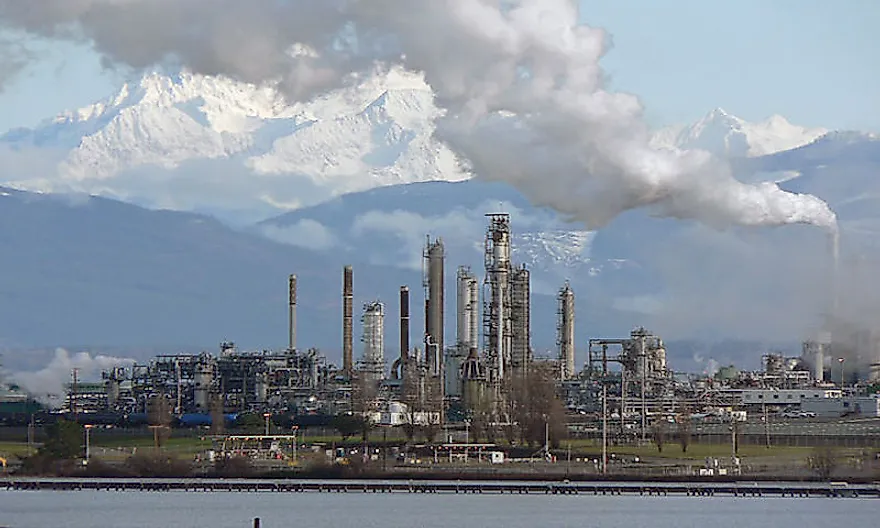What Is The Environmental Impact Of The Petroleum Industry?

The Petroleum Industry
A petroleum refinery is a large industry and the most vital part of the economy of some of the countries around the world including the United States, Middle East, and some parts of Africa. Petroleum and crude oil exist in a combination of liquid, gas, and sticky, tar-like substance. Petroleum plays a major role in the transportation industry and heating for both homes and industrial activities. However, the impact of petroleum refinery on the environment is often negative and has increased health concerns to the communities close to them because petroleum is mainly toxic to all forms of life while its extraction may lead to climate change.
The petroleum industry is involved in both mining and refinery of crude oil to produce an array of product. Petroleum refining involves several procedures and processes. Some of the techniques involved in the separation of chemicals in the oil industry involve fractionation, hydrotreating, manufacturing, and transportation. These complex processes impact the environment in a different way despite the benefit of getting the important oil. The increasing demands of the petroleum products have put a strain on the petroleum industry. Environmental regulations have caused the industries to change their strategies and activities towards clean production.
Impacts Of Drilling For Oil
Petroleum companies drill oil from the ground by use of drilling rigs and wells that reaches the pocket of oil bed. The oil is likely to fill the rock layer and spread throughout the open place. The oil may spill into the water bodies like oceans, lakes, or rivers. The crude oil contains toxic material that is lethal to water animals like fish and reptiles and may lead to several deaths within a short time. Distillates of the crude oil and petroleum may also cause congenital disabilities to fish and other animals which come into contact with them. Drilling for oil also requires that the ecology of an area be altered by clearing land to create adequate space for drilling of oil.
Environmental Impacts Of Petroleum Refinery
Petroleum refinery is a major source of pollution in areas where they are established. The refineries are major sources of toxic air pollutants including BTEX compounds, carbon monoxide, particulate matters, and sulfur dioxide. Some of toxic chemicals released into the air are suspect cancer-causing agents and are also responsible for the development of reproductive problems, and respiratory complications. A large amount of carbon monoxide emissions traps the heat in the earth leading to climate change.
Petroleum refineries are also major contaminators of surface and ground water. The deep wells for the disposal of waste material end up in aquifers and ground water. Some of the refineries also discharge untreated waste material into the water bodies such as lakes and rivers. This means of waste disposal into the rivers affects the quality of water and the water animals. The petroleum products that find their ways into the water bodies are also highly inflammable and may cause river fires like has been the case of Cuyahoga River. Petroleum refining activities may also contaminate the soil. Soil contamination includes the hazardous waste, oil spills, sludge from the treatment process, and coke dust. Soil contamination reduces the fertility of the soil and introduces foreign particles which may affect the growth and quality of crops.











